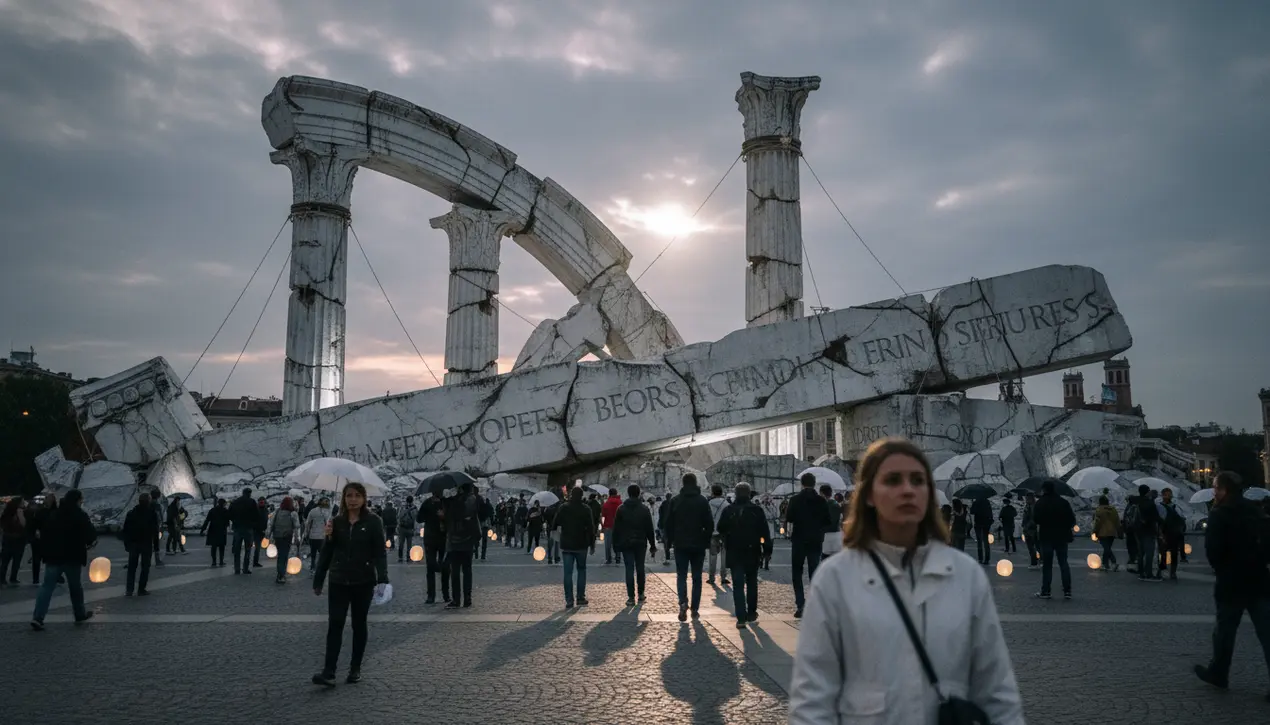
Politicsgovernments & cabinetsPolicy Agendas
Reinvigorating Europe's Social Contract for the 21st Century
RO
Robert Hayes
2 hours ago7 min read
The post-war European order, a grand political architecture painstakingly assembled from the rubble of conflict, finds itself at a critical juncture in the 21st century. Its foundational social contract, a tripartite covenant of freedom, prosperity, and the rule of law that has underwritten an unprecedented era of stability, is showing profound signs of strain.To merely sustain this model is an exercise in managed decline; Europe must instead, with deliberate and clear-eyed strategy, reinvigorate it. The first pillar, freedom, is no longer challenged by the stark, ideological divisions of the Cold War but by a more insidious and diffuse array of threats.The digital panopticon of state and corporate surveillance erodes personal liberties, while foreign disinformation campaigns, akin to the psychological operations of old but turbocharged by artificial intelligence, seek to corrode the very legitimacy of democratic institutions from within. The resurgence of nationalist and populist movements across the continent, echoing the siren songs of a more fractured past, directly contests the liberal consensus that has been Europe's guiding star.This is not a time for complacency but for a Churchillian resolve to defend the hard-won freedoms that, once lost, are exceptionally difficult to reclaim. Parallel to this, the covenant of prosperity, which promised and for decades delivered widespread economic security, is fracturing.The post-war boom, fueled by American largesse through the Marshall Plan and the integration of common markets, created a rising tide that lifted nearly all boats. Today, however, globalization's discontents, automation's relentless advance, and the seismic economic shocks of the 2008 financial crisis and the COVID-19 pandemic have exposed deep structural vulnerabilities.The generational compact is breaking, with younger Europeans facing the grim prospect of being worse off than their parents, burdened by precarious work and unsustainable debt, while aging populations strain social security systems to their breaking point. This growing inequality is not merely an economic statistic; it is a political toxin that fuels the very populism that threatens the first pillar of freedom.Without a renewed commitment to inclusive growth, one that harnesses the green and digital transitions not as disruptions but as engines of broad-based opportunity, the social contract risks becoming a hollow document, irrelevant to the lives of ordinary citizens. Finally, and perhaps most fundamentally, the rule of law—the unglamorous but essential bedrock that prevents the descent into arbitrary power—faces its own trials.Within the European Union itself, the delicate balance between national sovereignty and supranational legal order is being tested by member states that openly challenge the primacy of EU law, a direct assault on the Union's foundational principles. Externally, a resurgent authoritarianism, exemplified by Russia's blatant violation of international norms in Ukraine, presents a stark alternative to the rules-based order Europe has championed.The rule of law cannot be a passive inheritance; it must be actively enforced, consistently upheld, and dynamically adapted to new challenges, from cyber warfare to transnational corruption. The three pillars are not standalone structures; they are deeply interdependent.A decline in prosperity weakens faith in the institutions of freedom. An erosion of the rule of law makes sustained prosperity impossible.Europe's task, therefore, is not to repair one pillar but to shore up all three simultaneously, understanding that its future as a beacon of democratic values depends on this holistic reinvigoration. The alternative is not stagnation, but a gradual unraveling of the most successful political project in modern history.
#editorial picks news
#Europe
#social contract
#democracy
#rule of law
#prosperity
#policy agenda
#21st century challenges
Stay Informed. Act Smarter.
Get weekly highlights, major headlines, and expert insights — then put your knowledge to work in our live prediction markets.
Comments
Loading comments...
© 2025 Outpoll Service LTD. All rights reserved.